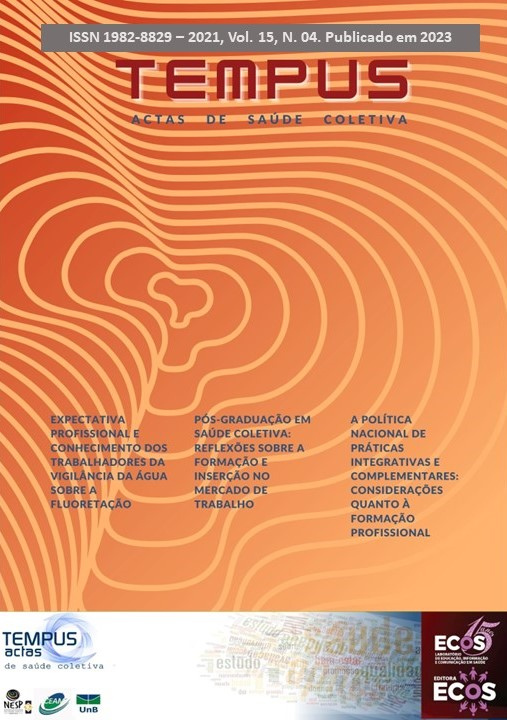Abstract
The formation of bachelors in Collective Health proposes a new way of organizing the health work process. It emphasizes health promotion, prevention of risks and injuries, care reorientation and improvement in life quality, favoring changes in lifestyle and in the relationships among social subjects involved in the population´s health care. This article reports the experience of monitoring graduates from the first undergraduate class in Collective Health at the Federal University of the South and Southeast of Pará, in Marabá – Pará that took place in September 2019. From the 11 graduates of the first Collective Health bachelor’s class, only five answered to the follow-up form, resulting in the following profile: 80% are between 22 and 25 years old, 80% male, 60% brown; 80% single; 80% live in Marabá; 20% had a paid job during their graduation and none is included in the course´s area of expertise. Of the respondents, 50% are currently engaged in some paid activity with a workload equal to or greater than 40 hours per week. Despite they have completed the course less than 12 months ago, the fact that they are not included in the area is worrying, even though opportunities for regularizing the course in public examinations are advancing. It is important to monitor the graduates as a social function of the university, thus, seeking to observe their path and also maintain a bond and interaction with the community.

This work is licensed under a Creative Commons Attribution 4.0 International License.
Copyright (c) 2023 Tempus – Actas de Saúde Coletiva
